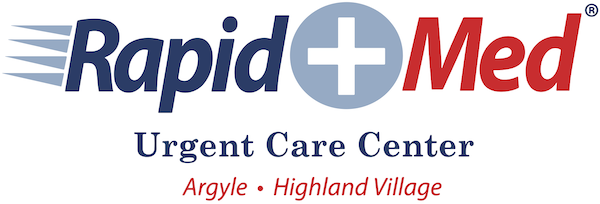Fibromyalgia can be a complex chronic and acute pain disorder characterized by a widespread musculoskeletal pain, fatigue, sleep disturbances, cognitive difficulties, and other symptoms. While the exact cause of fibromyalgia remains unclear, it is believed to involve abnormalities in how the brain and spinal cord process pain signals, as well as changes in neurotransmitter levels and abnormalities in the central nervous system.
Symptoms of Fibromyalgia: Fibromyalgia symptoms can vary widely among individuals and may fluctuate in intensity over time.
Common symptoms include:
- Widespread Pain: Chronic, widespread pain that affects muscles, ligaments, and tendons throughout the body, often described as a dull ache or burning sensation.
- Fatigue: Persistent fatigue and exhaustion, even after adequate rest and sleep, which can significantly impact daily activities and quality of life.
- Sleep Disturbances: Sleep disturbances such as insomnia, non-restorative sleep, restless legs syndrome, or sleep apnea, leading to daytime fatigue and cognitive difficulties.
- Cognitive Symptoms: Cognitive difficulties, often referred to as “fibro fog,” including memory problems, difficulty concentrating, and impaired decision-making.
- Mood Disorders: Mood disturbances such as depression, anxiety, or mood swings, which may be exacerbated by chronic pain and fatigue.
- Headaches: Recurrent headaches, including tension headaches or migraines, which are common in individuals with fibromyalgia.
- Sensory Sensitivities: Heightened sensitivity to sensory stimuli such as light, noise, temperature, or touch, which can exacerbate pain and discomfort.
- Other Symptoms: Additional symptoms may include irritable bowel syndrome (IBS), temporomandibular joint (TMJ) disorders, numbness or tingling in the extremities, and heightened sensitivity to certain medications.
Diagnosis of Fibromyalgia: Diagnosing fibromyalgia can be challenging due to the subjective nature of symptoms and the absence of definitive diagnostic tests.
Diagnosis typically involves:
- Medical History: A thorough review of the patient’s medical history, including symptoms, duration, severity, and impact on daily activities.
- Physical Examination: A comprehensive physical examination to assess for tender points, muscle stiffness, joint mobility, and other signs of fibromyalgia.
- Symptom Assessment: Evaluation of fibromyalgia symptoms using standardized assessment tools such as the Fibromyalgia Impact Questionnaire (FIQ) or the Revised Fibromyalgia Impact Questionnaire (FIQR).
- Exclusion of Other Conditions: Laboratory tests and imaging studies may be ordered to rule out other medical conditions that may mimic fibromyalgia, such as autoimmune disorders, thyroid dysfunction, or rheumatic diseases.
Treatment of Fibromyalgia: Treatment for fibromyalgia aims to alleviate symptoms, improve function, and enhance quality of life.
Treatment options may include:
- Medications: Medications such as pain relievers, antidepressants, anticonvulsants, muscle relaxants, and sleep aids may be prescribed to manage pain, improve sleep, and alleviate other symptoms.
- Exercise: Regular physical activity, including aerobic exercise, strength training, and flexibility exercises, can help reduce pain, improve muscle strength and endurance, and enhance overall well-being.
- Cognitive Behavioral Therapy (CBT): CBT techniques such as cognitive restructuring, relaxation training, stress management, and pacing strategies can help individuals with fibromyalgia develop coping skills and improve their ability to manage pain and other symptoms.
- Stress Reduction Techniques: Stress reduction techniques such as mindfulness meditation, deep breathing exercises, progressive muscle relaxation, and biofeedback can help reduce stress levels and improve symptoms of fibromyalgia.
- Alternative Therapies: Complementary and alternative therapies such as acupuncture, massage therapy, chiropractic care, and hydrotherapy may provide additional relief for some individuals with fibromyalgia.
- Multidisciplinary Approach: A multidisciplinary approach involving collaboration between healthcare providers such as primary care physicians, rheumatologists, pain specialists, physical therapists, occupational therapists, and psychologists can help address the diverse needs of individuals with fibromyalgia and optimize treatment outcomes.
 Seeking Care at Rapid Med Urgent Care: If you or a loved one is experiencing symptoms suggestive of fibromyalgia, it’s essential to seek prompt medical evaluation and appropriate management. Rapid Med Urgent Care in Highland Village or Argyle offers comprehensive care for individuals with fibromyalgia, including:
Seeking Care at Rapid Med Urgent Care: If you or a loved one is experiencing symptoms suggestive of fibromyalgia, it’s essential to seek prompt medical evaluation and appropriate management. Rapid Med Urgent Care in Highland Village or Argyle offers comprehensive care for individuals with fibromyalgia, including:
- Expert Evaluation: Our experienced healthcare providers conduct thorough assessments, including medical history review, physical examination, symptom assessment, and diagnostic testing as needed, to accurately diagnose fibromyalgia and develop a personalized treatment plan.
- Individualized Treatment: We develop individualized treatment plans tailored to each patient’s needs, preferences, and goals, focusing on symptom management, functional improvement, and enhancing quality of life.
- Collaborative Care: Our team of healthcare providers collaborates closely with other specialists as needed, including rheumatologists, pain management specialists, physical therapists, and psychologists, to provide comprehensive care and support for individuals with fibromyalgia.
- Ongoing Support: We provide ongoing support and monitoring for patients with fibromyalgia, helping them navigate the challenges of living with a chronic pain condition, optimizing treatment outcomes, and promoting overall well-being.
By seeking care at Rapid Med Urgent Care, individuals with fibromyalgia can receive timely evaluation, personalized treatment, and ongoing support to manage their symptoms effectively and improve their quality of life. Don’t let fibromyalgia control your life – visit Rapid Med Urgent Care for expert care and relief from fibromyalgia symptoms today.

